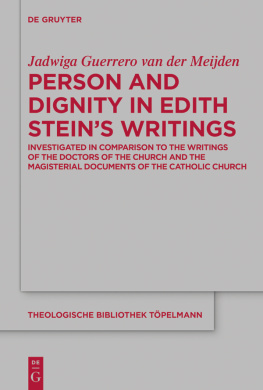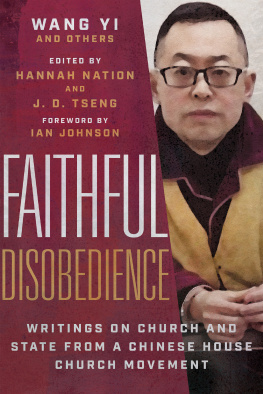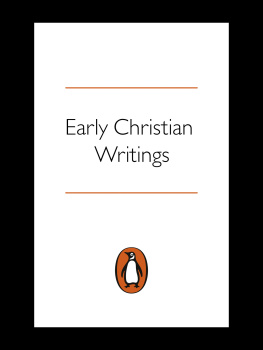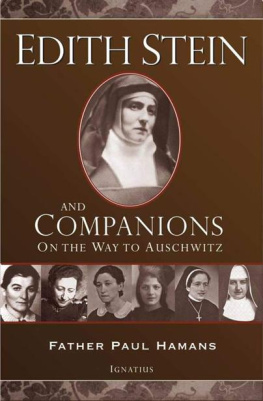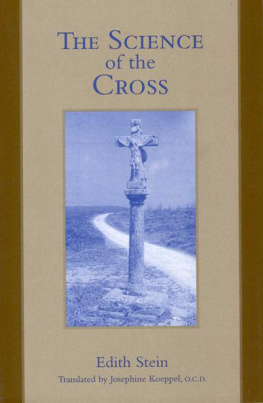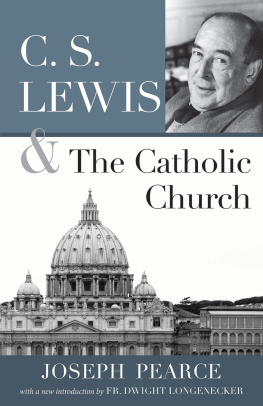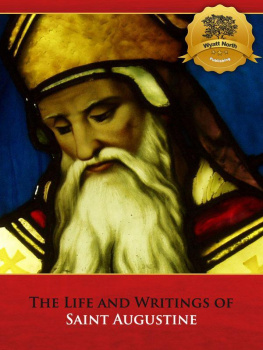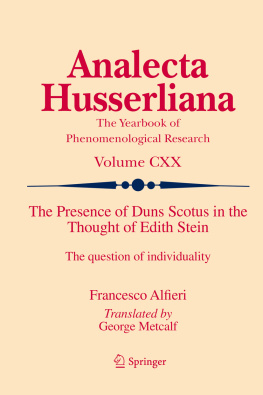Contents
Guide

Jadwiga Guerrero van der Meijden
Person and Dignity in Edith Steins Writings
Theologische Bibliothek
Tpelmann

Edited by
Bruce McCormack, Friederike Nssel
and Christoph Schwbel
Volume 186
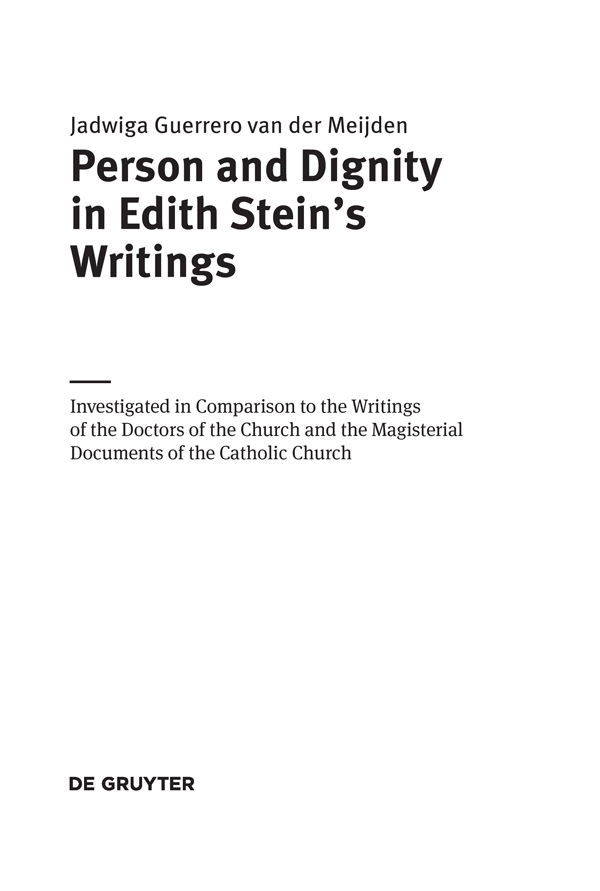
This publication was made possible by the research grant Preludium 11, project number 2016/21/N/HS1/03517, awarded by the Polish National Science Centre (NCN) (UMO-2016/21/N/HS1/03517).
ISBN 978-3-11-065942-9
e-ISBN (PDF) 978-3-11-066115-6
e-ISBN (EPUB) 978-3-11-065996-2
ISSN 0563-4288
Library of Congress Control Number: 2019938938
Bibliographic information published by the Deutsche Nationalbibliothek
The Deutsche Nationalbibliothek lists this publication in the Deutsche Nationalbibliografie; detailed bibliographic data are available on the Internet at http://dnb.dnb.de.
2019 Walter de Gruyter GmbH, Berlin/Boston
www.degruyter.com
To Ramn
and to my Parents,
Anna and Pawe ,
in gratitude .
Acknowledgments
I am deeply indebted to a number of academics, who supported me throughout the writing of this volume, first and foremost to my two supervisors, Prof. Dr hab. Jan Kiebasa from Jagiellonian University and Prof. Dr phil. Dr theol. hab. Claudia Mariele Wulf from Tilburg University, who each encouraged, guided and challenged me in my work. I am especially grateful to Prof. Jan Kiebasa for his excellent guidance and selfless support in my study of the patristic and medieval history as well as his patient listening to a growing number of ideas concerning the conceptual part of this study. The intellectual paths we took together shaped me as a scholar and as a person. I am similarly grateful to Prof. Wulf for introducing me to the most recent Steinian research and scholars and for her generous dealings with time and space, whenever a consultation was needed. Her advice and the close-reading of this volume enlightened me with many fruitful ideas.
I received many helpful suggestions from Prof. Dr hab. Josef Seifert, Founding Rector of the International Academy of Philosophy and from Dr Mette Lebech, a past President of the International Association for the Study of the Philosophy of Edith Stein. Their expertise and close-reading of this book contributed greatly to the final version of this volume.
This book would not have reached its final form but for the inspiration I received from the group of scholars from Instituto de Filosofa Edith Stein in Granada: Dr Feliciana Merino Escalera, Dr Mtys Szalay and Dr Aaron Riches. The help of the Discalced Carmelite Sisters, who run the Edith Stein-Archiv in Cologne and who hosted me in their cloister, was indispensable to my archive research. For her support in my efforts to consult the medieval manuscripts kept in the Bodleian Library as well as for consultations and guidance during my stay at Oxford University, I am very thankful to Prof. Cecilia Trifogli from All Souls College. I owe many of my methodological ideas to the discussions with Prof. Michel Henri Kowalewicz from History of Ideas Research Centre (at the Jagiellonian University), whose encouragement put me forward at the early stages of my work and whom we all suddenly lost, before this work was finished. I must give mention to Dr Jarosaw Olesiak, whose advice serviced the editorial process, and to Dr Micha Bizo, with whom I discussed some ancient Greek terminological issues.
Finally, I was able to complete this book because of the support of my husband, Ramn. If not for a by now ten-year-long philosophical debate we have been engaged in day by day, my thinking would have lacked a sharp, critical eye and a deep understanding of an entirely different, honestly skeptical perspective. I profited greatly from his eagerness to test the worth of my argumentation, equally much as I grew due to his deep respect for my thinking.
And, most importantly, Deo gratias .
List of Abbreviations
| CCC | Catechism of The Catholic Church |
| CCSL | Corpus Christianorum Series Latina |
| CIC | Code of Canon Law |
| CSDC | Compendium of the Social Doctrine of the Church |
| CWES | The Collected Works of Edith Stein |
| DMLBS | Dictionary of Medieval Latin from British Sources |
| ESGA | Edith Stein Gesamausgabe |
| ESGA PL | Dziea zebrane w. Teresy Benedykty od Krzya (Edyty Stein) |
| ESW | Edith Steins Werke, Editions Nauwelaerts |
| JPPF | Jahrbuch fr Philosophie und Phnomenologische Forsuchung |
| L&D | Lewis and Short Latin Dictionary |
| LSJ | Liddle Scott Jones Ancient Greek Dictionary |
| OLD | Oxford Latin Dictionary |
| PG | Patrologia Graeca, J. P. Migne |
| PL | Patrologia Latina, J. P. Migne |
| ST | Summa Theologiae (always accompanied by an authors name) |
| TLL | Thesaurus Linguae Latinae |
Introduction
1The Two Ideas: of the Person and of Dignity How Did It All Begin?
Throughout the history of European thought the concepts of a person and of dignity overlaped in a significant and intriguing way, in particular within the tradition of Christian philosophy and theology. It was the new-born idea of a Trinitarian God that spawned the search for a conceptual framework to express a seemingly impossible notion: the absolute oneness and unity of three distinct realities, one of which was to incorporate both a divine and a human nature and all that without giving up the logical principle of non-contradiction. The search for a metaphysical solution required terminology, and it is within the Trinitarian terminology that the core concepts of the present study were brought to the fore of philosophical and theological reflection.
The Latin word persona already played a significant role in Roman antiquity: it was commonly used in reference to a theatrical mask, a character in a tragedy or comedy, a grammatical person (such as ego , tu , nos , vos etc.) and a social role;
In late antiquity and medieval times four famous definitions of a person were coined and persisted within later philosophical and theological traditions: the so-called substantial definition offered by Boethius (Lat. naturae rationabilis individua substantia ) All of the aforementioned authors understood a person to be a category that refers to the beings that are a someone, rather than a something.
On the other side of Europe, in the East, the Greek tradition and terminology prevailed. The ancient Greeks distinguished between a what and a who in their linguistic structures (Greek is different from ), yet there was no one Greek noun that named all beings that were understood by the Greeks as someone (e. g. human beings, gods and all mythological: sirens, centaurs, nymphs, cyclops, Minotaur etc.). The Greek terms and , very much disputed later in the context of both Trinitarian and Christological debates, had older roots than those of the Latin term persona .

